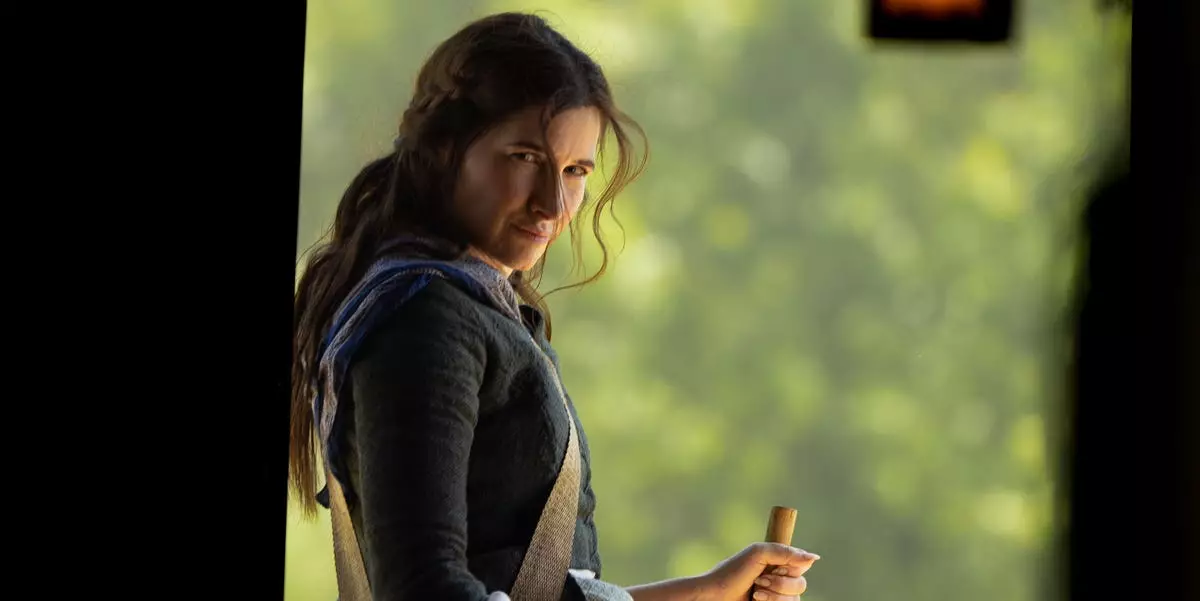The Marvel Cinematic Universe (MCU) is renowned for its exciting storytelling, compelling characters, and the clever intricacies of its narratives interwoven across various films and series. Among the many beloved aspects of this expansive universe, the post-credits scenes have carved a niche that keeps audiences on the edge of their seats. Fans excitedly await these tantalizing glimpses into the future of the MCU, with each scene hinting at upcoming sagas or character developments. However, the recent Disney+ series “Agatha All Along,” which concluded its finale episodes on October 30, has raised eyebrows due to the conspicuous absence of such scenes. This unconventional choice invites a deeper exploration into its implications and underlying reasons.
For over a decade, post-credits scenes have become synonymous with the Marvel experience. From the iconic Samuel L. Jackson appearing as Nick Fury in “Iron Man” to the more subtle nods in series like “WandaVision,” these moments not only function as a bridge to future narratives but also engage the audience, intensifying their emotional investment. Fans eagerly dissect these snippets, hypothesizing about future Avengers teams or new threats to the universe. Therefore, choosing to exclude this time-honored tradition in “Agatha All Along” strikes a stark contrast, hinting at a shift in Marvel’s approach.
Showrunner Jac Schaeffer’s recent interview reveals the underlying corporate decision in favor of omitting the post-credits scenes. While she expressed her regret over the omission—having written several potential tags that never made it to screen—it raises questions about the delicate balance between creative autonomy and corporate constraints in the Marvel universe. Schaeffer’s assertion that “that’s a Marvel decision” suggests a top-down directive from Marvel’s higher-ups, a move that aligns with their often inscrutable approach to storytelling.
Moreover, Schaeffer’s comments imply an understanding within the creative team that plotting the future is a complex web of interconnected stories and characters that cannot be prematurely revealed. This decision can be interpreted as a conscious effort to maintain intrigue within the increasingly convoluted narrative of the MCU.
Unpacking the decision to forgo a post-credits scene prompts speculation about what lies ahead for characters like Agatha Harkness, played captivatingly by Kathryn Hahn. Unlike traditional narratives where characters effortlessly transition between sequels or spin-offs, “Agatha All Along” ends its tale without clear indications for continuity or connections to Marvel’s broader themes. Such omissions may serve to create a new narrative tension; withholding knowledge encourages speculation. Fans might ponder whether Agatha, a character with rich potential, awaits further development, especially in light of the absence of Wanda Maximoff (Elizabeth Olsen) after her fateful conclusion in “Doctor Strange in the Multiverse of Madness.”
On another front, the character of Billy, also known as Wiccan, symbolizes the potential trajectory of the Young Avengers. While fans are ecstatic about this growing roster of younger heroes, the lack of definitive links in “Agatha All Along” prompts a necessity for patience. Marvel’s strategic restraint seems to prioritize controlled world-building, instead of bombarding audiences with interconnected narratives too soon.
Marvel’s decision to refrain from post-credits scenes may speak volumes about its new strategic direction. The company has recently navigated various highs and lows, both in storytelling and audience reception, and may be recalibrating its approach to storytelling in a post-Endgame landscape. As Marvel ventures into a multitude of new narratives and explorations of mental health, grief, and societal issues, the absence of post-credits could mean focusing more on dialogue between the episodes themselves rather than hinting at the next blockbuster.
While the absence of post-credits scenes in “Agatha All Along” may disappoint some die-hard fans accustomed to anticipating revelations, it signals an interesting turning point for the MCU. By allowing the show to stand independently without tying future narratives or characters too definitively, Marvel creates an open space for both audiences and creators alike. As the narrative world continues to expand, keeping some threads loose might be a powerful strategy, fostering discussion, generating excitement, and drawing audiences back not just for what they expect, but for what surprises might await them on future journeys in this ever-growing universe.

